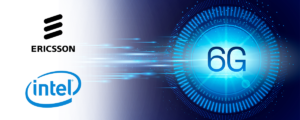
Without 5G internet, our digital landscape would be drastically different. Not only has this revolutionary technology facilitated the rise of household staples like Netflix and Prime, but it has also been instrumental in meeting the remote work demands imposed by the pandemic, ensuring our sanity remains intact. As we continue to explore the vast potential of 5G, pioneers are already venturing into the realm of its ambitious successor: the legendary 6G.
A consortium of Japanese companies — DOCOMO, NTT, NEC, and Fujitsu — has made history by unveiling one of the world’s first high-speed 6G wireless devices. And let me tell you, it’s nothing short of spectacular!
This groundbreaking device boasts mind-boggling data transmission speeds of 100 gigabits per second (Gbps), surpassing its 5G predecessor by a remarkable 20 times. To put things into perspective, this speed is a whopping 500 times faster than current 5G speeds, equivalent to transferring five HD movies every second!
For context, most new smartphones come equipped with 5G capabilities, offering average internet speeds of around 200 megabits per second (Mbps) in the United States. Theoretically, advancements in 5G could push its speeds to a maximum of 10 Gbps, which would still be ten times slower than the speeds achieved in these pioneering 6G experiments.
These extraordinary achievements are made possible because, unlike 5G, which primarily operates within lower frequency bands, 6G taps into the untapped potential of higher-frequency bands between 100 GHz and 300 GHz. While data transfer is faster at these new bands, environmental factors can pose challenges, particularly indoors.
However, transitioning to these new bands requires the development of new infrastructure, meaning it will take some time before 6G becomes accessible to the general public. But once established, it could pave the way for even more revolutionary technologies, such as mixed reality and enhanced virtual reality.
As the world eagerly awaits the widespread adoption of 6G technology, Japan’s pioneering efforts serve as a testament to human ingenuity and the relentless pursuit of innovation in the digital age.



